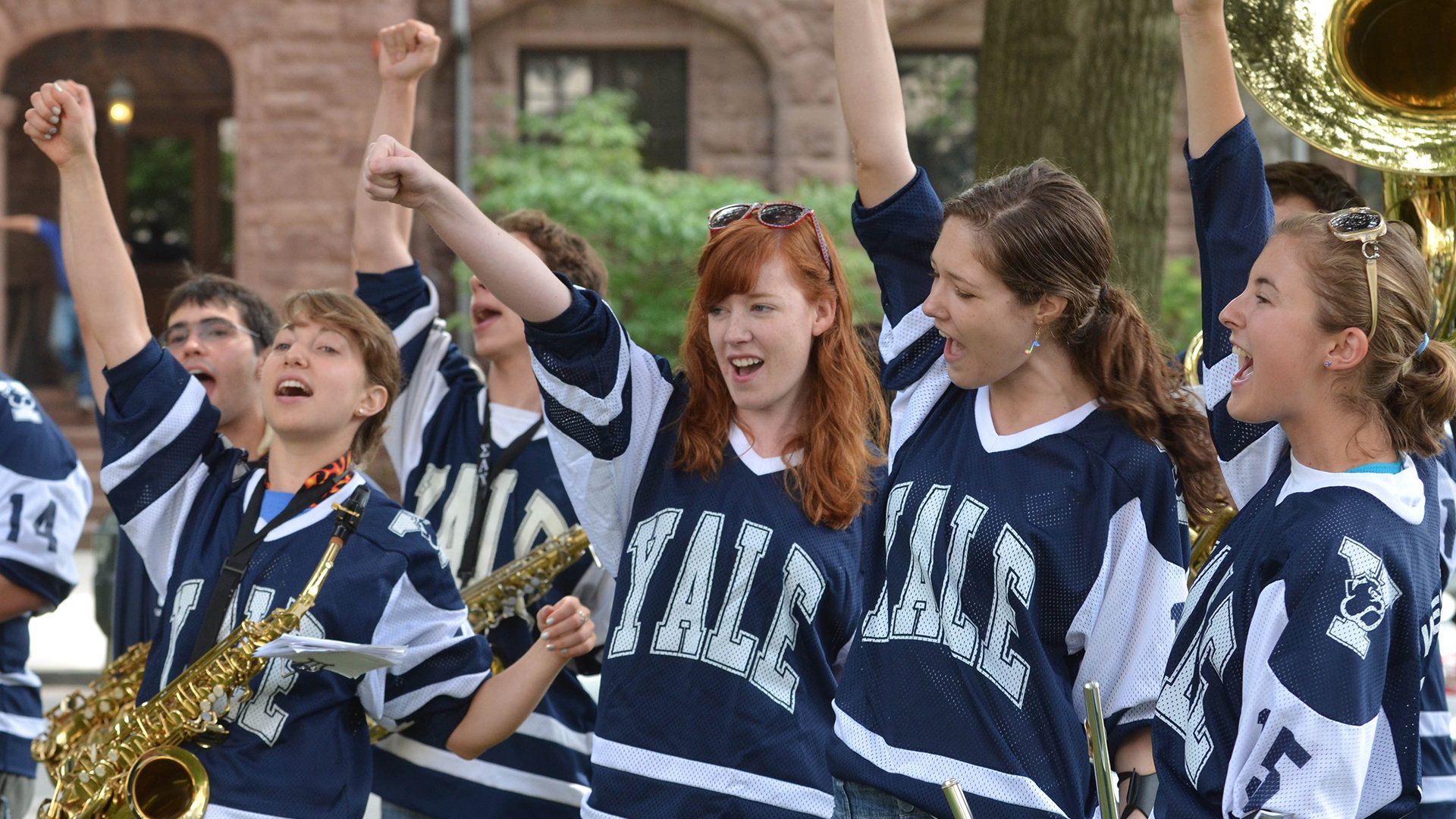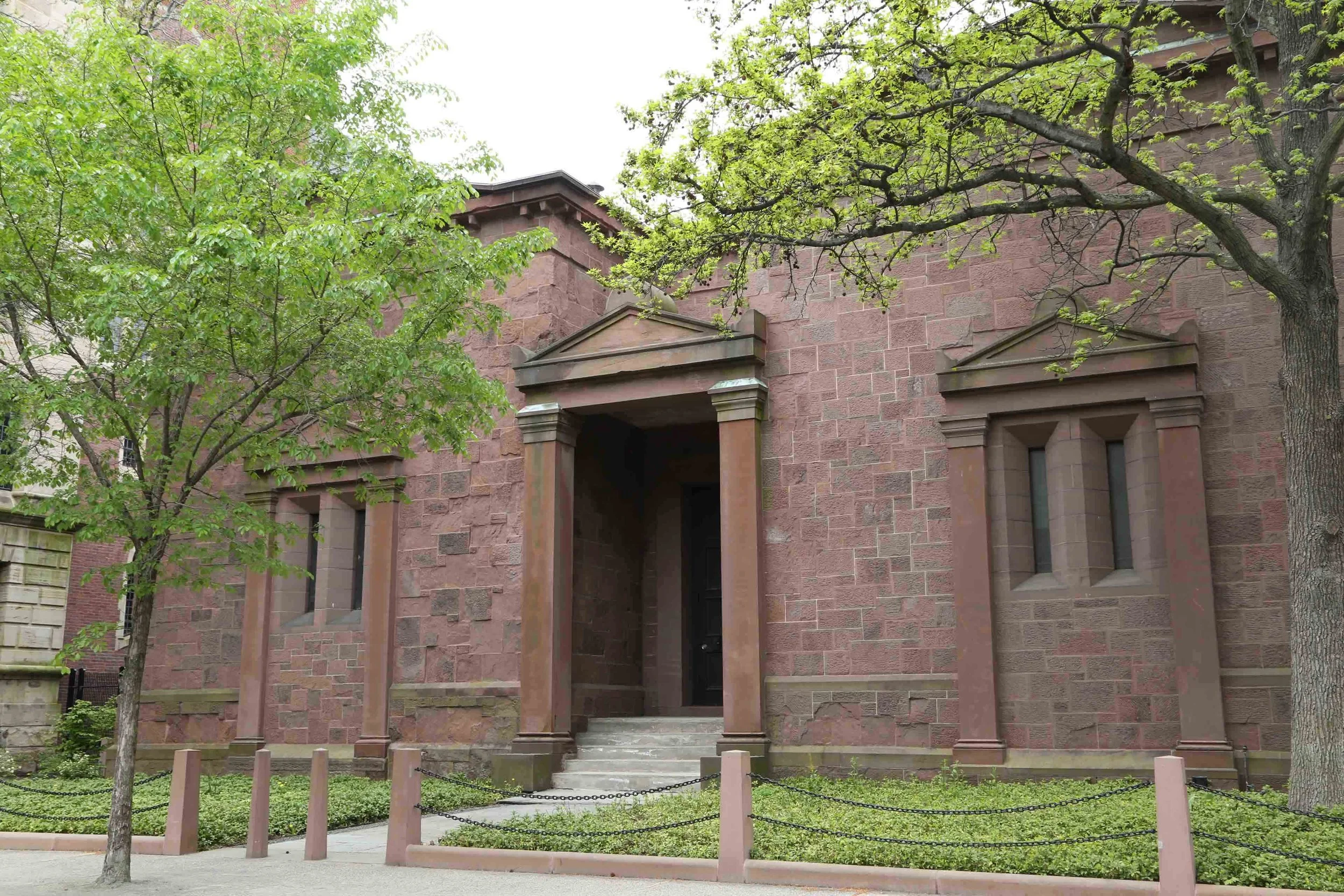How to get into Yale
What is Yale’s reputation?
“the anti-Harvard” “real-life Hogwarts” “artsy fartsy” “theater nerds” “prominent LGBTQ+” “social justice warriors” “creative performers” “collaborative” “world-class musicians” “future legal scholars” “secret societies” “eclectic” “intellectual” “super friendly” “great campus in a grungy city” “woke extremists” “coddled millennials”
As one of the oldest and most storied colleges in America, Yale is steeped in tradition (lots of US Presidents went there). Located in the somewhat “sketchy” city of New Haven, Connecticut, Yale itself is a beautiful gated community of world-renowned professors, brilliant students, and an endless wealth of resources. Yale prides itself on being just as academically elite as Harvard, without having the stigma of being as stuffy, hyper-competitive or obsessively career-driven. Students here are just remarkably smart, curious, and passionate about what they do, often championing for social causes.
The Residential College System.
The cornerstone of a Yale education is the residential college system. Just like in Harry Potter, incoming freshmen are randomly assigned to one of fourteen different residential colleges, which each have their own dorms, customs and traditions. (Unlike at Hogwarts, the colleges don’t each have their own distinct personality, however.) For the next four years, your residential college will be your small family within the larger university, which helps you build a strong sense of community. You’ll live together, eat together, compete in intramural sports together, even take freshman seminars together.
Each residential college has its own dining hall, library, gym and music studios, and each college features a diverse mix of students and acts as a representative microcosm for the larger student body. If you don’t like your residential college, or all of your friends are in a different one, don’t worry: you can always apply to transfer to another one, space permitting.
It’s worth noting that Harvard, Princeton and Dartmouth all feature some version of a residential college system, to varying degrees, but none are as deeply entrenched or as central to a student’s overall educational experience as at Yale. For example, when two Yale alums meet, the first question they inevitably always ask is: What college were you in?
The Pros of Yale…
Students rave about their professors, who are some of the most accomplished experts in the world. They also generally love the school’s social scene, and say that there’s always something to do on-campus, from clubs to hobbies to parties. Because New Haven isn’t a large thriving city with lots of appealing entertainment options (it has some, but nothing compared to Boston, New York or even Philadelphia), students tend to invest their energy back into campus, which means there’s always something to do. In many ways, Yale’s strong campus community mirrors that of Dartmouth, Cornell and Princeton, whereas students tend to venture off-campus and “do their own thing” at Columbia and Harvard.
The other selling point for Yale is its strong creative community. Out of all of the Ivy Leagues, Yale tends to draw students who are incredibly passionate about art, music, performance, dance, acting, singing, play writing, film making, etc. — even if it has nothing to do with their major. Seemingly every other student is singing in an a capella group, producing a play, performing in an improvisational comedy troupe, or launching some kind of art exhibit. If you appreciate the arts, and want to surround yourself with lots of bright, creative people, you’ll be right at home at Yale. Students generally seem happy here, and college website Niche.com ranks Yale a Top 5 school for “Best Student Life” in America.
The Cons of Yale…
One of the biggest complaints students have is that while Yale professors are some of the most fascinating scholars in the world, trying to get into a class with one of them is notoriously difficult. Almost all of the most popular seminar courses fill up instantly and you’ll have to join a long waiting list of hopefuls to have any shot at getting in. The school employs a lottery system to address this chronic issue, and preference is given to upperclassmen and students who need the course to fulfill a major requirement. While students say “shopping period” is a great way to sample potential courses at the start of the semester, it’s frustrating to realize you won’t be able to get into many of them.
The other negative is the surrounding city of New Haven, Connecticut, which has earned a reputation for being rather “gritty” and dangerous. While many students are quick to the defend their city, and say that it’s safe, diverse, and provides a lot of interesting entertainment options (including the best pizza in America), it’s a far cry from a super-city like Boston (Harvard) or New York (Columbia). And you’re certainly not going to have access to internships at top companies like you would in those cities. While Providence, RI (Brown) and Philadelphia, PA (UPenn) are not perfect cities, they offer many advantages over New Haven. And Princeton, Cornell and Dartmouth willing trade urban access for natural beauty.
For better or for worse, Yale is home to eight infamous “secret societies” with mysterious names like Skull and Bones, St. Elmo, and Berzelius that had a long history of excluding women and minorities and affording critical career advantages to their white, wealthy, conservative, male members. There are actually several dozen of these secret societies at Yale now that tap seniors for their exclusive clubs, but in recent years they seem to be filling their ranks with minority, female, low-income, and other underrepresented groups. Despite this “progress,” they’re still highly exclusionary in nature, which rankles many students, the same way “final clubs” do at Harvard.
About 10 years ago, Yale also found itself in the throes of a national scandal over political correctness when a rather belligerent mob of Black and other “triggered” minority students surrounded a white professor and demanded that he and his wife be fired for suggesting that maybe little kids should be able to wear Halloween costumes that others find personally objectionable (like a Disney Pocahontas costume). Instead of embracing the opportunity to engage in a civil discourse on racial issues, Yale burnished its reputation for “delicate snowflakes” who need “safe spaces.” While all of the Ivies skew liberal, Yale, Harvard, Brown and Columbia are perhaps the most radical.
What does Yale look for in applicants?
Like all the Ivies, Yale is looking for straight-A students who have crushed their standardized tests (average: 34 ACT, 1530 SAT) and have some remarkable extracurricular achievement. But much like Harvard and Princeton, Yale tends to attract students who have over-achieved in one single area, and in the case of Yale, it’s often (but not always) something artistic. Maybe you wrote a musical that got produced off-Broadway, or your short film won the Jury Prize at South by Southwest; or you’ve acted in several Steven Spielberg movies (because he’s your dad), or you study cello under Yo-Yo Ma. Not all accepted applicants have an artistic bent, of course, but a disproportionate number of them do. It’s just an extremely artsy school.
Final tips for getting in.
Yale doesn’t offer Early Decision anymore. Instead, they’ve joined the ranks of Harvard and Princeton and replaced it with something called Single-Choice Early Action (SCEA). It works just like other non-binding Early Action program, but it does impose some restrictions: for example, you can’t apply Early Decision anywhere else, and you can’t apply Early Action to another private university (but public universities are okay). While students statistically have a better chance getting in with SCEA (10% with SCEA vs 4% for Regular Decision), it likely has more to do with the better applicant pool for SCEA than anything else. Yale strongly maintains that it gives absolutely no preference to SCEA applicants, which may or may not be true.
Yale requires standardized tests again.
Beginning in Fall 2024, applicants to Yale must once again submit standardized test scores with their college application. But they’ve given students some flexibility: you can either submit your SAT or ACT or all of your AP or IB test scores. They have no preference which standardized tests you submit, but if you do submit your AP or IB test scores, you have to submit all of them (not just the one you did best on). You can also “super-score” your SAT or ACT, which means you can report your best scores in different sections of the test, even if they were taken on different days.
It’s important to know that Yale will evaluate your scores in the context of your educational background. So if you come from a disadvantaged background where top students only score a 1200 on the SAT, and you score a 1400, then you will look like a rock star (even though it’s well below the 1550 average for incoming freshmen). Your application and your test scores will be judged against other students in your specific area, from your specific background, not against the national applicant pool.
Yale’s stunning Gothic architecture and historic residential college system are reminiscent of the Hogwarts School from Harry Potter.
The residential college system gives students a smaller home within a larger university, and provides them with an chance to compete in intramural sporting events for the Tyng Cup.
While the surrounding city of New Haven can be sketchy, students generally feel very safe behind their locked campus gates.
Yale students tend to be exceptionally creative, and there’s an endless abundance of performance opportunities.
As progressive as Yale is, they still have many powerful “secret societies” that thrive on their exclusionary nature, much like the controversial “final clubs” at Harvard.
Hundreds of Yale students participate in a “March of Resilience” protest demanding more “safe spaces” on campus.






